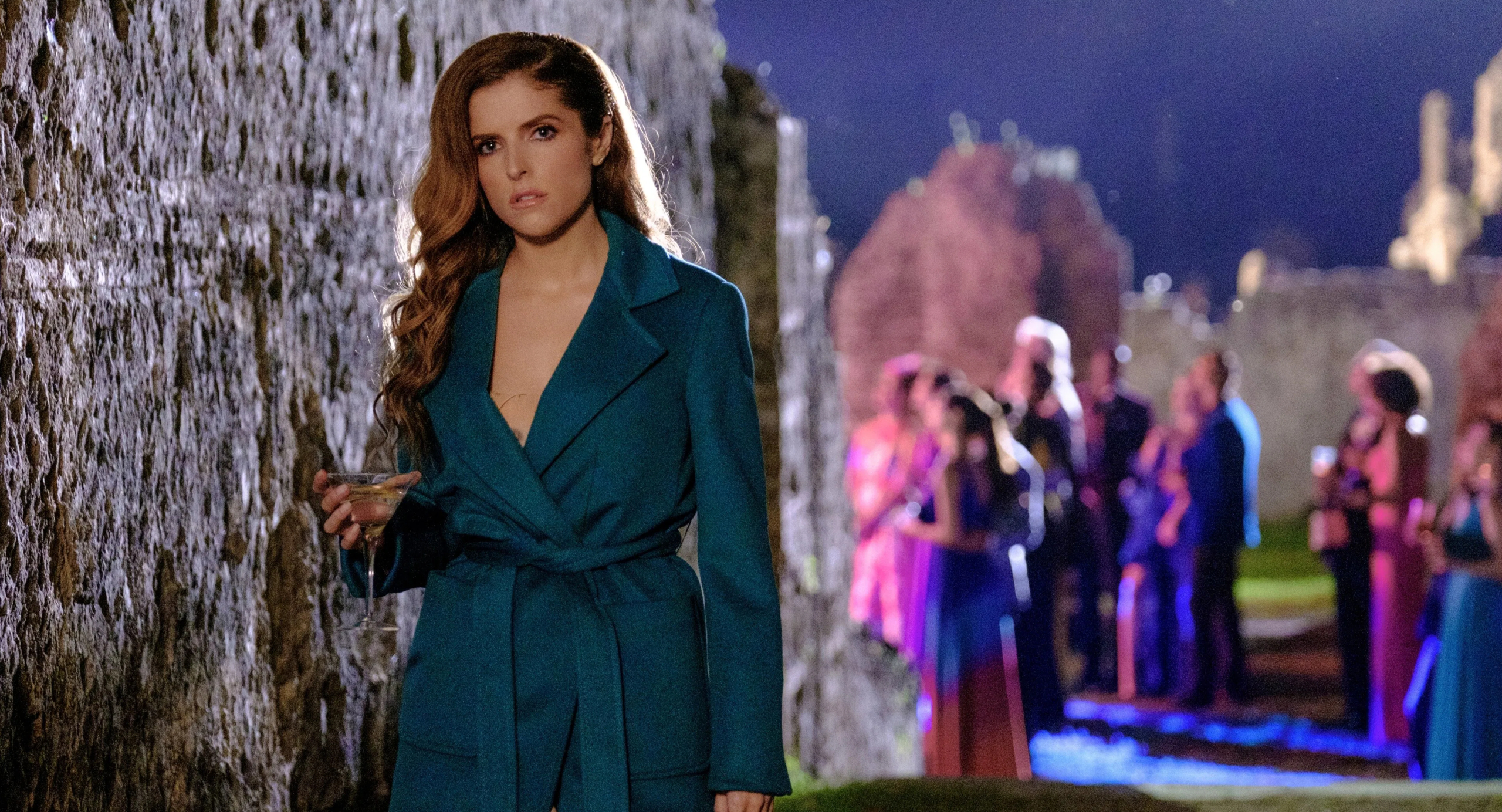Another Simple Favor – Film Review
Published May 2, 2025

In Another Simple Favor, director Paul Feig returns to the world of high-gloss intrigue, twisted friendships, and couture crime with a sequel that defies the odds by being nearly as stylish, funny, and sharply entertaining as its predecessor. Written by Jessica Sharzer and Laeta Kalogridis, this black comedy mystery elegantly straddles the line between camp and cleverness, adding international flair and operatic stakes to the story of suburban mom-turned-sleuth Stephanie Smothers and her elusive, enigmatic best frenemy, Emily Nelson.
Set five years after the events of A Simple Favor (2018), the film reunites us with Stephanie (Anna Kendrick), who has parlayed her brush with murder and scandal into a career as a true crime vlogger and author. Her world is once again thrown into chaos when Emily (Blake Lively) resurfaces—newly freed, unapologetically chic, and now engaged to the wealthy and mysterious Dante Versano (Michele Morrone). Emily, being her usual manipulative self, ropes Stephanie into being her maid of honor for a lavish destination wedding in Capri. From there, secrets unravel, bodies pile up, and everyone’s motives grow murkier by the minute.
Anna Kendrick is absolutely fantastic, delivering another pitch-perfect performance that balances neurotic charm with growing confidence. Kendrick makes Stephanie a character worth rooting for again, effortlessly navigating the tonal pivots between comedy, horror, and heart. She’s the emotional center of the film, and her earnestness grounds the increasingly outlandish plot developments. Blake Lively, once again swanning around in power suits and impossible sunglasses, plays Emily with cold wit and magnetic detachment. Her performance is more restrained than before, but no less captivating.
The supporting cast shines as well. Michele Morrone brings a simmering intensity as Dante, while Elizabeth Perkins is deliciously cryptic as Emily’s icy mother, Margaret. Allison Janney, joining the ensemble as Aunt Linda, injects menace with a smile and manages to be both hilarious and horrifying in equal measure. Ian Ho as Nicky remains endearing, now with more agency, and Joshua Satine reprises his role with sincerity. Elena Sofia Ricci and Alex Newell make brief but memorable appearances, adding color to the increasingly tangled web of deception and betrayal.
What elevates Another Simple Favor above typical sequel fare is its stunning visual presentation. Cinematographer John Schwartzman captures the Italian setting in lush, saturated hues, turning Capri into both a vacation fantasy and a gothic trap. The film is dripping with style—from its meticulous wardrobe design (Lively’s wardrobe again steals scenes) to the ornate villas, cascading cliffs, and candlelit receptions. Every frame looks carefully curated, giving the mystery an elegant sheen.
Equally impressive is Theodore Shapiro’s musical score, which threads together suspense and satire with finesse. The music lends a heightened, Hitchcockian flavor to the narrative without undercutting its comedic roots. Whether it’s a soaring orchestral cue or a cheeky needle-drop, the soundtrack keeps pace with the film’s tonal rollercoaster and augments both its elegance and its edge.
Feig and the screenwriters keep the film’s dialogue snappy and referential. Much like the first installment, Another Simple Favor knows exactly what it is—a pastiche of noir, soap opera, and high fashion satire—and leans into that identity with unashamed glee. There are moments of genuine tension, laugh-out-loud absurdity, and even touching vulnerability, all stitched together with a playful spirit. The chemistry between Kendrick and Lively remains electric, their scenes crackling with tension, repartee, and just enough ambiguity to keep viewers guessing about their loyalty to one another.
That said, the film isn’t without flaws. The plot, already teetering on the edge of ridiculousness, suffers from some pacing issues—particularly in the second act, where a series of twists begin to stack up without much breathing room. While the script’s aim is clearly to disorient and surprise, a few developments come off as rushed, with characters switching allegiances or motivations with dizzying speed. The third-act twist, in particular, lands somewhere between bold and bonkers. It’s a testament to Feig’s tonal control that the film doesn’t fall apart completely, but there’s no denying that suspension of disbelief is heavily taxed in the final stretch.
Still, Another Simple Favor succeeds in what it sets out to do: entertain. It’s slick, sharp, and self-aware, juggling noir tropes, satirical bite, and genuine character development better than most genre mashups. Fans of the first film will find plenty to love—reunited characters, new dynamics, and an escalation of stakes that feels earned even when the story goes operatic.
The sequel deepens the thematic undercurrents of its predecessor, particularly the complex relationship between truth and performance. Stephanie’s journey continues to explore how women are expected to perform roles—mother, friend, partner, victim—and how identity can become both a weapon and a mask. Emily, meanwhile, remains a cipher, constantly reinventing herself as a means of survival. Their push-pull relationship—equal parts toxic and touching—is the film’s greatest strength, and the reason its emotional core still resonates beneath the layers of murder, deceit, and martinis.
Another Simple Favor is a stylish, darkly comic thrill ride that amplifies everything audiences enjoyed about the first film while taking bold new swings. It’s a cocktail of glamour, danger, and sardonic humor, served with just enough bite to leave an impression. Though its plot occasionally tips into the implausible, the film’s wit, aesthetic confidence, and standout performances—especially Kendrick’s—make it an immensely watchable and worthy sequel.
